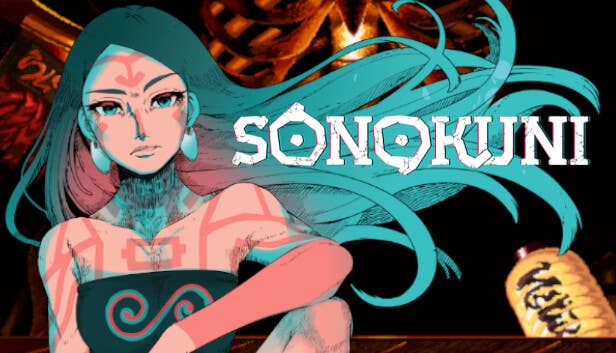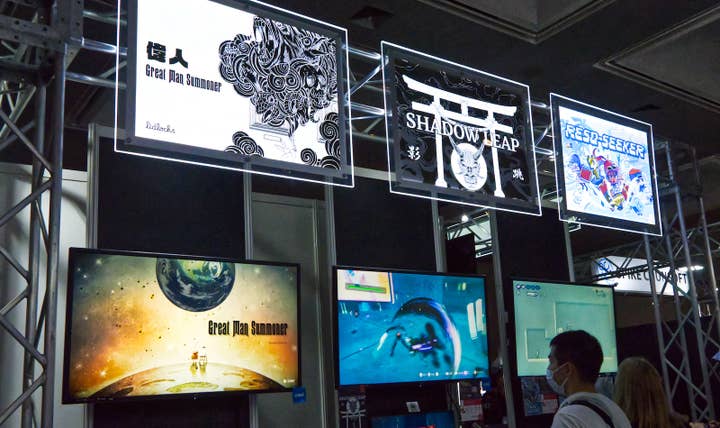How Indie Game Incubator seeks to take Japanese indies global
We look at what the program and its sister initiative, the government-backed So-Fu, mean for the future of the dev community and Japanese entertainment as a whole
Success as an indie developer is tough. For every game that finds critical and commercial acclaim another ten projects fail to make a profit for the creators who put years of their lives into their art.
Behind that are another ten projects that dream of a shot at commercial success, but lack the experience needed to polish their prototypes into a finished product, or lack the connections needed to reach publishers who can elevate the profile of their games above the sea of also-rans. Game incubators are one way of bridging this gap.
Programs such as the MENA Hero Project or NYU Game Center Incubator are run with one goal in mind: transform small independent game projects into polished, launched games, connecting first-time and smaller creators with industry veterans and investors. Workshops, co-working spaces, and even funding are usually provided via these programs, to help creators dedicate greater time and refine their work for commercial release.
Especially in developing regions or those with a smaller indie scene, incubators can be a way to grow the industry and provide a platform to put the country on the map. As Japan's indie scene continues to grow, it should come as no surprise that new game incubators are looking to support ambitious creators looking to take their games to the next level.
The Indie Game Incubator was established in 2021 as a joint initiative managed by Marvelous Entertainment, Ludimus (a consulting company in the realms of anime, manga, and games) and Head-High, a development tools creator founded by indie creator Takaaki Ichijo. They also manage the Indie Developers Conference and Japanese indie gaming news resource indiegamesjp.dev.
"The Japanese development community is very invisible from an international perspective"Sho Sato
This six-month incubator includes mentoring and workshops, and a publishing event to connect the incubated developers with publishers from Japan and around the world like Room6, Devolver Digital, and TinyBuild. It additionally focuses on bridging the language gaps that have typically held Japanese games back from reaching global audiences, helping devs to explain the appeal of their games in English.
According to Sho Sato, CEO of Ludimus and co-founder and secretary general of Indie Game Incubator, such language barriers were a major factor influencing the decision to create this Japan-focused incubator.
"Most Japanese developers can't speak English, so they can't apply for many international incubator programs," he tells us. "The Japanese development community is very invisible from an international perspective, and while I was a researcher in emerging countries [covering video games development], I came to understand the importance of these incubators, which is why I helped create it.
"[At the end of the Indie Game Incubator] we have 30 game publishers attending our demo day in Shibuya, with about 70 publishers attending online. Here we'll have people like Tiny Build or other Western figures, as well as the likes of Kodansha, Japanese game publishers, Chinese publishers like Gamera Games, and others."
Currently the Indie Game Incubator is in its fourth wave of supported titles, and has already seen some results from its early incorporated titles. In the first batch of titles from early 2022, Ninja or Die was published by Marvelous, while NeverAwake was published by Phoenixx and won the prize for best game at the 2022 Bitsummit showcase in Kyoto. Death The Guitar from the third phase of the incubator won the same award in 2023.
From the second batch of titles, rap-infused top-down action title Sonokuni won two awards at the most recent 2024 edition of Bitsummit for sound design and from media sponsor VGC, and will be published in the future by Kakehashi Games.

Indie Game Incubator also helps the developers themselves find renewed confidence and a platform for future success with other projects. Developer Kotake Create took part in the third edition of the incubator with Strange Shadow, refining the game further over six months before taking time to work on other projects. One of those projects was The Exit 8, the bite-sized Tokyo subway walking simulator with an unnerving twist that would later go viral.
Although this incubator doesn't provide additional funding to games in development, it does provide support and assistance from global mentors with a promised 400 hours of lectures and mentoring over the six-month schedule. The program also gives the games a chance to showcase at major events like Bitsummit, where all of the latest batch of titles had a chance to present their games to the public and publishers.
While many of these titles have also appeared at other events – R-ta's Reso-Seeker is a game I've personally followed with great interest as a metroidvania set in a resort hotel that has undergone a major artistic overhaul and refined its core mechanics over numerous demos at events large and small – for many this was the biggest platform that these games have received to date.
In addition to this initiative, there's also So-Fu, targeting games further along in development. Run by the Indie Game Incubator in partnership with the Japanese Ministry for Economy, Trade and Industry, So-Fu was initially founded in 2022 in partnership with Nothing New to assist film projects in the early stages of development, and expanded this year to additionally support the games industry.
So-Fu marks the first instance of the Japanese government stepping in to assist the indie gaming scene and boost its growth at a time when interest in Japanese games on a global scale is increasing. So-Fu as an incubator promises to support up to ten titles in the middle and later stages of development, with between ¥5 million and ¥10 million of funding and guidance on the games business and production.
"Around four or five years ago, there was little interest from the Japanese government in supporting creators"Sho Sato
It's a major shift that shows a recognition from the government of the games industry's importance to Japan's global influence, and how important it is that the industry remains strong at all levels, not just for major companies like Nintendo. According to Sato, "around four or five years ago, there was little interest from the Japanese government in supporting creators. That changed last year after [political business lobby] Keidanren published a proposal where they said the government should increase support for creators.
"It changed their minds a lot. [On the first day of Bitsummit], the Minister for the Economy came to Bitsummit and connected with some of the developers and visited the Indie Game Incubator booth. So things are changing."
The published proposal cites the broader entertainment output of the Japanese economy for games, anime, manga, and the importance of the industry for exerting soft power at a time when its economic potential is also growing.
Between 2012 and 2021, the market for Japanese entertainment outside Japan has grown from ¥1.4 trillion to ¥4.5 trillion. Yet it is also struggling to make the inroads or find the growing global influence enjoyed by K-pop or aspects of Chinese media despite the long-established audience for anime and Japanese pop culture. As a result, Japanese entertainment has actually enjoyed a shrinking percentage of the global market in recent years despite the monetary increase in revenue Japanese media has generated on the global stage.
In the paper, the lobby group argues that by divesting from past strategies like Cool Japan that sought to promote the concept of Japanese media over the actual creators, directly investing in those creating art will encourage more diverse voices to rise to the surface, as one way of growing the market to three or four times its current global revenue by 2033.
In doing so, the paper specifically cites examples like the Sweden Game Arena and its work in creating co-working hubs, supporting small creators in education and funding, and more, as an example of just some of the things the government should be doing in improving the long-term health of their entertainment industries, as well as allowing for more and varied work to reach a global audience.
This global approach can even be seen in the games selected through So-Fu for incubation and funding. CitalesGames' Witch the Showdown is a heavily anime-inspired deck-building roguelike aiming for both PC and console release in 2025, while Rizdebi from Sonokuni developer Don Yasu Crew is blending card game strategy with rhythm game timing and technicality. Hell Hell, meanwhile, is a cooperative stealth action game set in an amusement park in hell.

The paper also cites the ways studios themselves have stepped in to do some of this work, to positive results. Square Enix has sent developers to speak to university students, and this paper argues that the government should invest further in things like this that improve grassroots support and assist in bringing new creative minds into these industries.
Through So-Fu and Indie Game Incubator, the hope is that indie developers can reach a level of prominence enjoyed by global indies and bridge the language gaps that hold them back.
Indeed, So-Fu has made an express attempt to bring in mentors from both Japan and the global industry to ensure these varied voices and perspectives, as well as knowledge of what each region seeks, is shared with Japanese developers looking to create a greater global impact.
"Japan has many talented independent game developers. I hope this can be one more initiative that will help to cultivate that spirit"Samantha Low
Samantha Low, a journalist and public relations manager at Neon Noroshi, is one of the mentors chosen to support developers through So-Fu. Ahead of starting their work supporting this inaugural batch of titles, they hope the program is a chance for these indie creators to earn broader acclaim.
"Japan has many talented and earnest independent game developers. I hope this can be one more initiative that will help to cultivate that spirit. It's been heartwarming to see the amount of support the project has already received from the local scene as well as the international game dev community, and I'm really looking forward to supporting the creators on their journey."
The Indie Game Incubator and So-Fu are major initiatives that are seeking to give indie games from Japan the global spotlight they deserve, and come at a key time in the scene's development. More publishers like Room6, Yokaze, or Shueisha Games are making a jump into the scene, Bandai Namco's GYAAR Studio and others are running regular indie game contests that seek to uplift smaller titles and provide funding to winners, and events like Bitsummit are celebrating record attendance and growing larger every year.
This is a key moment for these games to step into the spotlight, but many need both funding and support to get over the line. Perhaps incubators like this are the crucial first step they need to achieve that goal.
